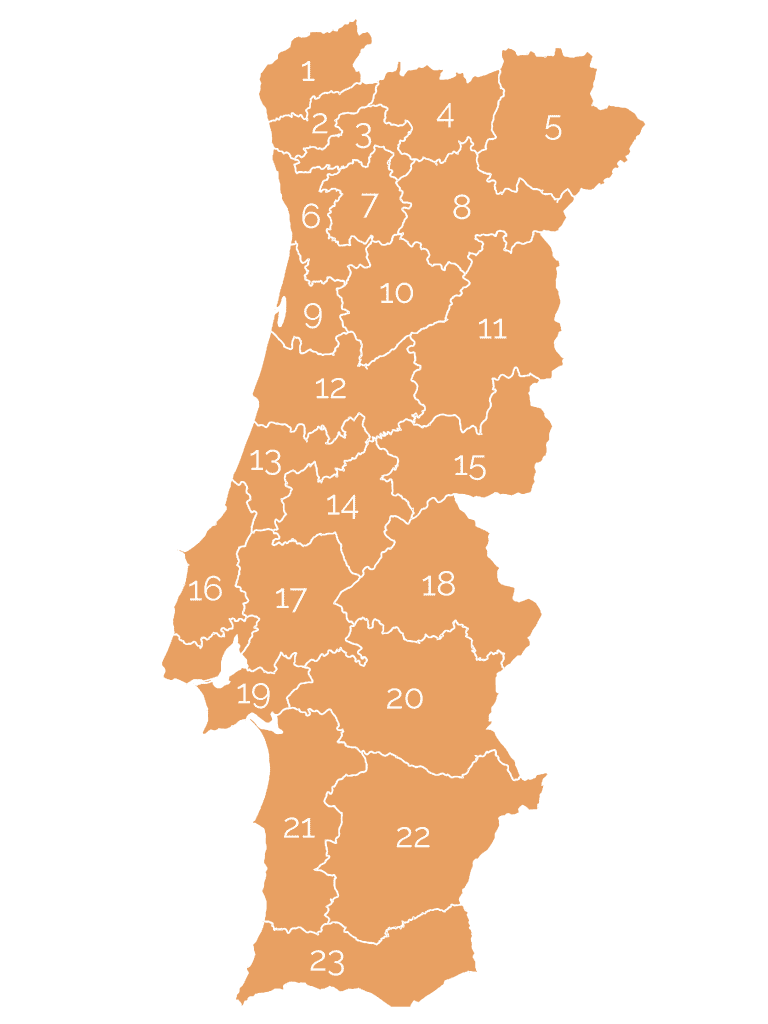Intermunicipal Communities
Territorial organization
According to Law no. 75/2013, of September 12, Portugal's intermunicipal communities (IMC) are free associations of municipalities, a higher local entity to which the associated municipalities delegate part of the functions or powers conferred on them by law, with the aim of providing services to all its members. In addition to the 2 metropolitan areas of Porto and Lisbon, there are 21 CIMs spread across the country, corresponding to the NUTS III.
Under the current legal framework, the IMCs are intended to pursue the following public purposes:
a) Promoting the planning and management of the economic development strategy, social and environmental aspects of its territory;
b) Articulation of municipal investments of inter-municipal interest;
c) Participation in the management of regional development support programs, particularly within the scope of the QREN;
d) Planning the actions of supramunicipal public bodies.

1. Alto Minho (Minho-Lima)
2. Cávado
3. Ave
4. Alto Tâmega
5. Terras de Trás-os-Montes
6. Área Metropolitana do Porto
7. Tâmega e Sousa
8. Douro
9. Região de Aveiro
10. Viseu Dão Lafões
11. Beiras e Serra da Estrela
12. Região de Coimbra
13. Região de Leiria
14. Médio Tejo
15. Beira Baixa
16. Oeste
17. Lezíria do Tejo
18. Alto Alentejo
19. Área Metropolitana de Lisboa
20. Alentejo Central
21. Alentejo Litoral
22. Baixo Alentejo
23. Algarve












